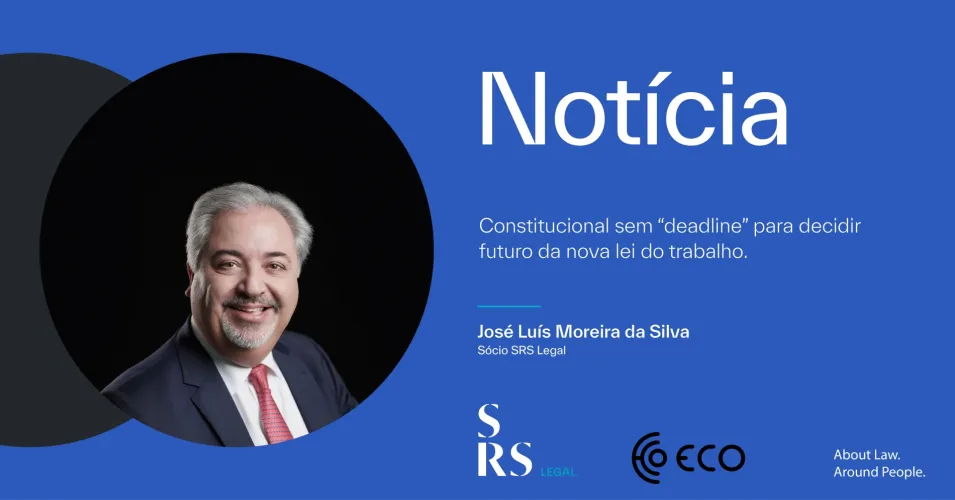Communication
"Constitutional without a deadline to decide the future of the new labour law" (with José Luís Moreira da Silva)
This explanation is confirmed by José Luís Moreira da Silva, a Partner at SRS Legal, who emphasises that the law sets deadlines for the respective process, but these should be considered "merely disciplinary". "In normal situations, such as this one, the decision could take a few months," says the lawyer.
(...)
Even before the new labour law was enacted, the employers' confederations wrote to the President of the Republic to warn that the law that had been passed in Parliament contained potential unconstitutionalities.
At the time, Marcelo Rebelo de Sousa could have requested a preventive review of the law, in which case the Constitutional Court would only have had 25 days to decide. "And these deadlines can be shortened for reasons of urgency," emphasises José Luís Moreira da Silva
(...)
(...) notes that in both cases the issue is the collision of constitutional rights. "It's a very controversial issue and one of the most difficult in constitutional law, because it's about finding the right balance between equally protected constitutional rights. The Constitutional Court's decision won't be easy and it's impossible to predict the outcome." For example, with regard to the controversial ban on outsourcing, the lawyer stresses that "this absolute prohibition is also seen by the Ombudsman as a total restriction of the right to private economic initiative, understanding that other, less prohibitive avenues could be used, such as the correct supervision of the use of collective redundancies or redundancies".



